Josep Bau holds a PhD in Biology from the University of Barcelona (2000) and completed his postdoctoral training with a two-and-a-half year stay at the Department of Entomology of the University of California, Riverside. After a period in the private sector, in 2006 he joined the UVic, where he has managed academic aspects of the bachelor’s degrees in Biology and Biotechnology and taught, mainly in the fields of Zoology and Molecular Biology. He is also part of the Bioinformatics and Bioimaging (BI-SQUARED) research group at the UVic. Although his original specialty is applied entomology, specifically the biological control of insect pests, he has been incorporating elements of computing and bioinformatics (and more recently molecular biology) into his research. Since September 2018, he has been the Vice-Rector of International Relations at the University of Vic - Central University of Catalonia (UVic-UCC).
What is the UVic-UCC internationalization process and what should it be like?
It must be, and in fact is, a process that develops in the context of a strategic plan based on the University’s comprehensive model of internationalization, with what is essentially a cross-cutting approach and purpose. In other words, all areas of the University must advance in internationalization in parallel, since the process would be weaker if we did not do it in this way. There is an institutional commitment to ensure that this is the case, and this means involving all UVic-UCC campuses, centres, services and areas. The first thing that comes to mind when we talk about internationalization is the mobility of students, teaching and research staff (PDI), and administration and service staff (PAS). This must be the case and it is very important, but so are talent recruitment, research, the establishment of agreements and other forms of collaboration, promotion and cooperation. Everything we do at the University must have an internationalization perspective.
"We want all areas of the University to advance in the internationalization process in parallel"
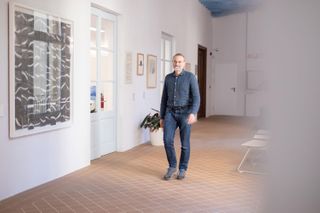
This year UVic-UCC has 1,543 foreign students enrolled in bachelor’s degrees, which is 15% of the total and more than in any previous academic year.
This is an extremely good figure. In fact, it helps position us as one of the universities in Spain with the highest levels of internationalization. This is one of our priorities: to continue working on the generation of international programmes, especially in postgraduate studies, to be able to expand and diversify the offer and the origin of students, and clearly identify the areas of knowledge that are attractive and the type of studies that international students are looking for. Right now, the field of Health and French students make up the largest contribution to international students, but we have many options for growth, especially in Europe and Latin America, and above all in continuing education, master’s degrees and doctoral courses.
Has the concept of international training changed?
A lot, and not only as a result of the pandemic and the new ways of working and interacting that it brought about. Now, when we talk about international training, we think of semester-long periods abroad, of course, but also other formats: blended mobility (one part online and one face-to-face), in groups, virtual mobility, spaces in the context of specific subjects, among others. This is not something that we have invented: the new Erasmus+ programme is moving in this direction. Another concept that is exploding is that of continuing education. There is a growing demand for borderless, quality training that can be adapted to needs and allows you to customize training or specialization tracks beyond the official qualifications. Everything changes very quickly, and learning must adapt to the needs and pace demanded by society.
Why is it so important for students to have international experiences in their higher education?
The international experience is transformative personally, professionally and academically. It helps to open the mind, to see things from other perspectives. It enriches the curriculum and companies value it increasingly. All of this is almost a cliché, but it is also true. Many students find it difficult to take the first step out of their comfort zone, and our job is to help them, to normalize it and to motivate them to dare to have these experiences. In this sense, online experiences and those of short duration help students a lot to lose this fear, and these first points of contact are a great incentive to want more. At the same time, we have noticed that students’ desire to go out of the country is increasing, and increasing a lot.
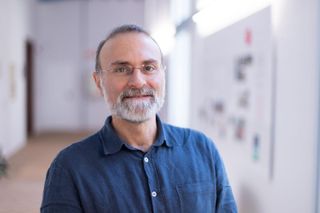
"The international experience is transformative personally, professionally and academically. It helps to open the mind, to see things from other perspectives"
Research is one of the areas that most helps in the international ranking of universities. At what stage are such activities at UVic-UCC?
At the opening ceremony this academic year, the Minister for Research and Universities, Joaquim Nadal, highlighted the growth in research at our institution. And it’s true: the University has experienced rapid, high-quality growth that may surprise some and attracts attention to UVic-UCC. Many factors have led to the UVic’s research becoming so well-known. However, one is undoubtedly the fact that it has an international focus, with partnerships with research centres, universities and entities from other countries. At the same time, the University’s research considers the context and needs of our territory.
Has the positioning in international rankings, such as THE World University Rankings that UVic-UCC entered in 2021 for the first time in a very good position, influenced the internationalization process?
Obviously, being in the rankings gives general prestige, but in terms of international relations it also places the universities that appear in the rankings at a different level from those that do not. It is a great merit to have entered the ranking for the first time in such a good position. The truth is that some doors that were closed or hard to access are now more accessible to us, due to the letter of introduction that these rankings give us. Naturally, once we go through one of these doors, we must work to achieve the goals that have been set and demonstrate the quality and solidity of the project, but when it comes to taking the first step, having elements that back us up makes things a lot easier.
When we talk about internationalization, we also talk about cooperation. What is UVic-UCC doing and where is it heading in this area?
Linked to social responsibility, participation in international cooperation projects, and service-learning and volunteering activities are at the heart of the University. They have a social impact, and exercise and promote individual and collective responsibility towards society. This is one of our missions. We work continuously on various projects with countries such as Senegal and Nepal. In addition, we have specific projects that are evolving, for example in Guatemala, Gambia or Morocco. What we want is to always have ongoing projects and to expand this cooperation to ensure that all students are aware of them, and can find their space to participate in this type of activity. Our job, here, is to accompany, promote and facilitate.
What is an institution like UVic-UCC looking for in an international partner?
Despite working at institutional and international level, it is the individual people of the university who create bonds of trust with other people from other entities, who make it possible to create real and lasting connections. In other words, we are not looking for agreements that simply allow us to expand our portfolio of relationships. We are looking for people who will help us develop powerful academic or research projects, who will create and maintain bonds of trust, and who will be in institutions with similar attitudes to ours. These relationships, which usually arise in the context of a specific degree, research study or project, are the seeds of solid and much wider institutional relationships. The relationship of trust is what gives real value to a framework agreement. Without trust an agreement would be empty.
The UVic-UCC surprises and has a positive impact due to a level and volume of research that the institutions that visit us did not expect to find
What view do you think people have of UVic-UCC, from the outside?
UVic-UCC is a young university but with an extensive track record. This contrast attracts attention and, it must be said, we have found that it surprises people in a very positive way. The international institutions that visit us are usually shocked to find a level and volume of research that they did not expect. The operation of the university, the professionalism of the employees, the infrastructures, the close attention to the student, the setting, the educational context and the quality of the teaching programmes, among other factors, all have an impact that is often expressed genuinely, not just out of courtesy.
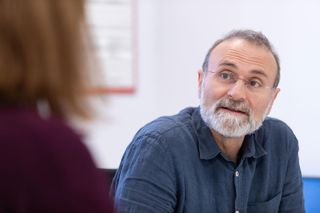
How does a firm desire for internationalization fit into a University that claims strong roots in the territory?
These are two aspects that are not at odds. Instead, they are well balanced and enrich each other enormously. When we are out in the world, the distinguishing feature that best positions us is the fact that we are a regional university that knows the territory very well, that is in close contact with it but from a global perspective. One example is the work of the BETA Technology Centre. Its ability to identify regional needs and European opportunities and goals, and to know how to connect the former with the latter is one of the keys to its success. We are an international university with our feet in the territory.
What should be the goals and future challenges of the UVic-UCC in terms of internationalization?
Now one of our priorities is to work to incorporate the UVic-UCC in a network of European universities to create a European campus that opens the doors to a long-term relationship and shared projects based on a common strategy. In other words, it is a supranational structure that allows all member universities of the consortium to jointly increase mobility, international programmes, competitive research and knowledge transfer projects. It has been more than a year since, together with six other European universities, we started working on a project for which we hope to obtain recognition and funding from the European Union in the context of the Erasmus+ programme. Our distinguishing feature is that all members are universities located outside provincial capitals, with a very close relationship with our territory of influence.
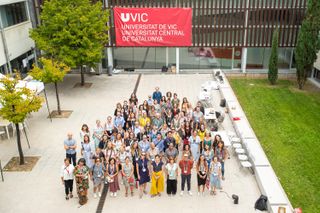
EAIE assistants visit UVic-UCC
As part of the 32nd annual conference of the European Association for International Education (EAIE), a delegation of 58 representatives from various foreign universities, many of which are partners of the UVic-UCC, visited the Vic Campus last September. The visit, as part of the Campus Experience, one of the activities organized as part of the conference, included talks, a networking lunch and a visit to different spaces. The EAIE offers a platform for learning, networking and knowledge exchange in the field of internationalization of higher education.
UManresa’s extensive network of relations with South America
UVic-UCC, through the Manresa Campus and with the University of Barcelona’s IL3, will organize in October 2023 the annual meeting of the Continuing Education Network of Latin America and Europe (RECLA). This meeting will take place between the cities of Manresa and Barcelona. UManresa’s activity in relation to South America has been growing for more than 7 years and has ended up coming together under the concept of U-Latam. The expansion strategy in this continent includes relationship and cooperation initiatives that cover areas such as health and business, and numerous countries such as Chile, Argentina, Guatemala, Mexico or Colombia.
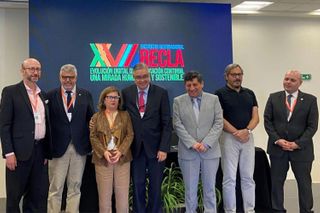
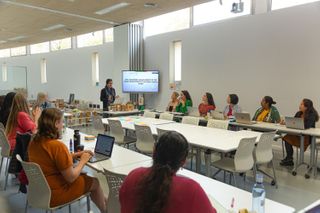
Seminar of the International Montessori Association in Vic
Last October, UVic welcomed the teachers and students of the international Trainer of Trainers programme from 0 to 3 years of the Association Montessori Internationale (AMI). The leading institution in this pedagogy gave the face-to-face part of this comprehensive training, of longer duration, aimed at teachers with years of experience who want to train other teachers in the application of the Montessori methodology in classrooms for children between 0 and 3 years of age. In total, 21 students from 13 countries participated in the seminar held at UVic. It was carried out within the framework of the agreement that the two institutions signed in 2019.
First internship mobility among medical students
Last year, coinciding with the deployment of the 5th year of the bachelor’s degree in Medicine, a dozen students carried out the faculty’s first international mobility experience, to complete two-month curricular internships within the framework of the Subject Clinical Practicum III. Some of them were completed within the framework of the Erasmus+ traineeships programme (in European Union countries and with the possibility of obtaining an Erasmus grant) and others were carried out as international internships. The students were distributed among hospitals in Italy, Croatia, Germany and Colombia, although internships can be carried out in a growing portfolio of health centres around the world under the agreements that the Faculty of Medicine signs with these institutions.
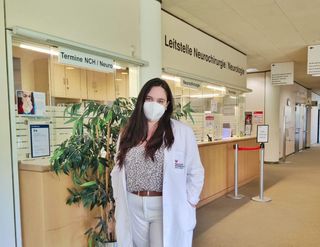
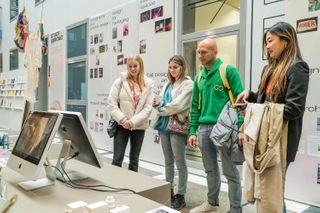
Internationalization in Elisava
The internationalization activities of the Elisava Faculty of Design and Engineering are part of the school’s strategy on many levels such as research, the international mobility of teaching and research staff (PDI) and the active promotion of student mobility, in programmes such as Erasmus+, Blended Intensive Programmes and international workshops, and in bilateral programmes. During the 2021-2022 academic year, bachelor’s degrees have sent more than 80 students abroad and the Faculty has received a similar number of incoming students. Other activities include the Study Abroad and Visiting Universities programmes. In master’s degree programmes, the internationalization rate is around 60% of those enrolled.